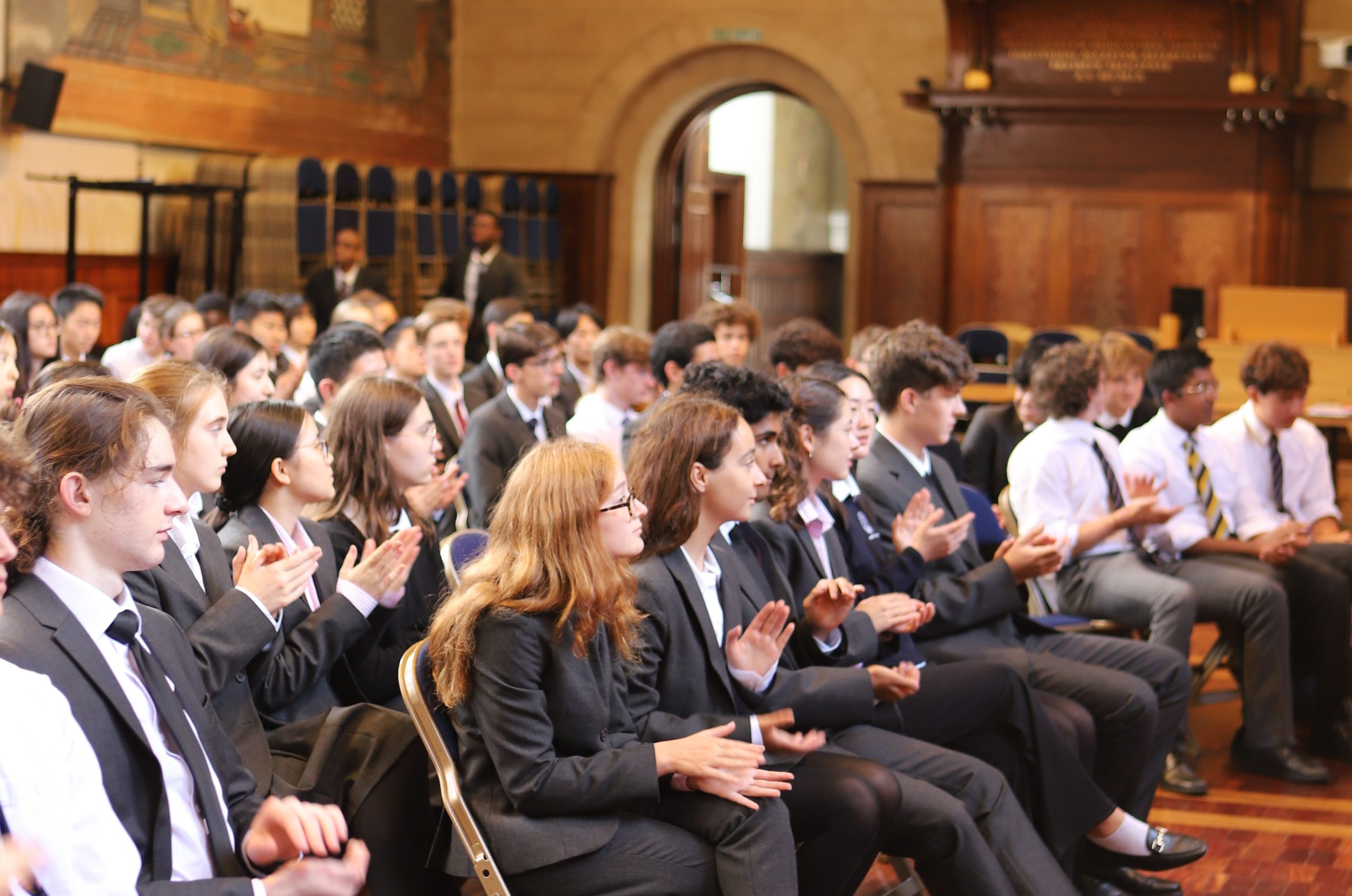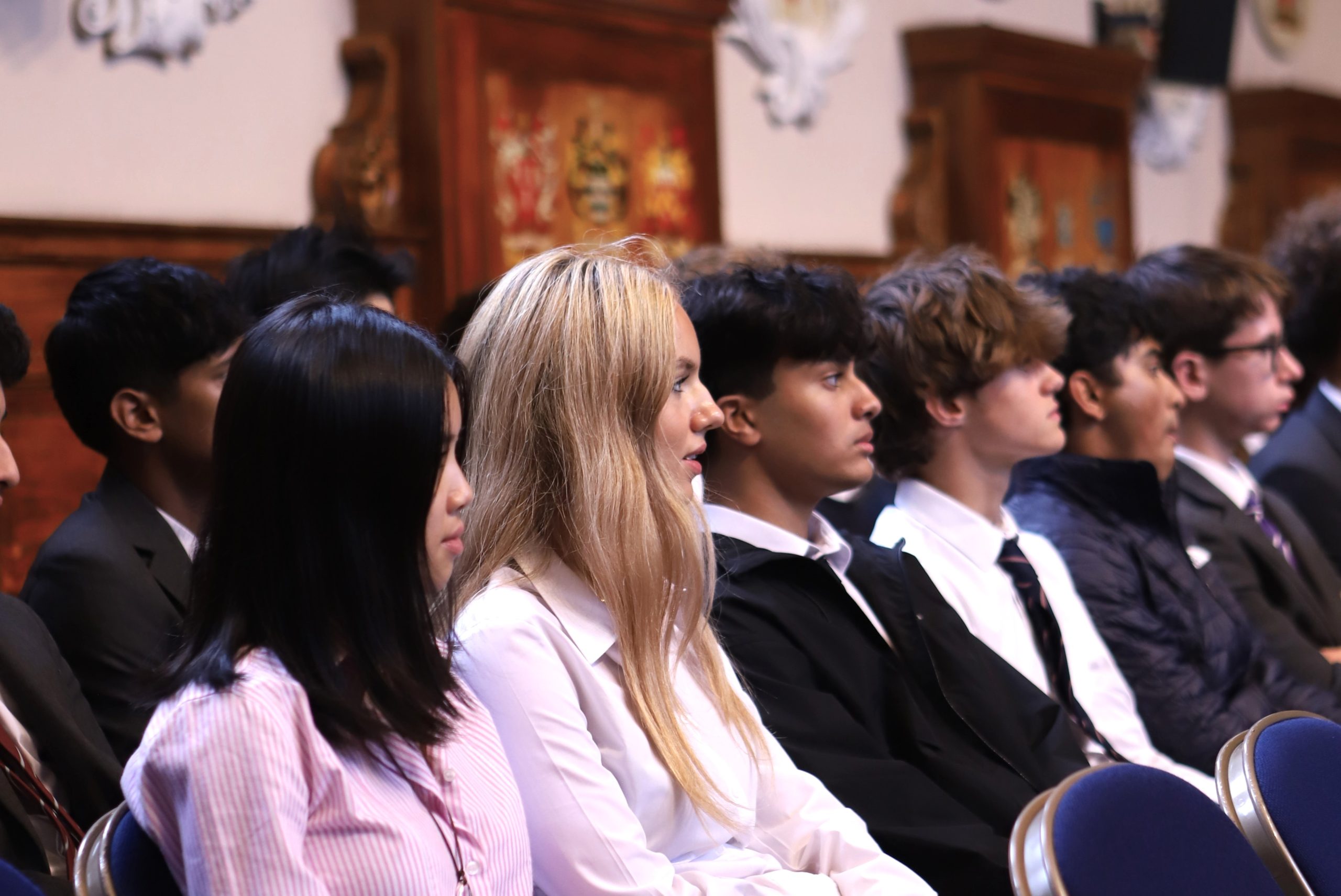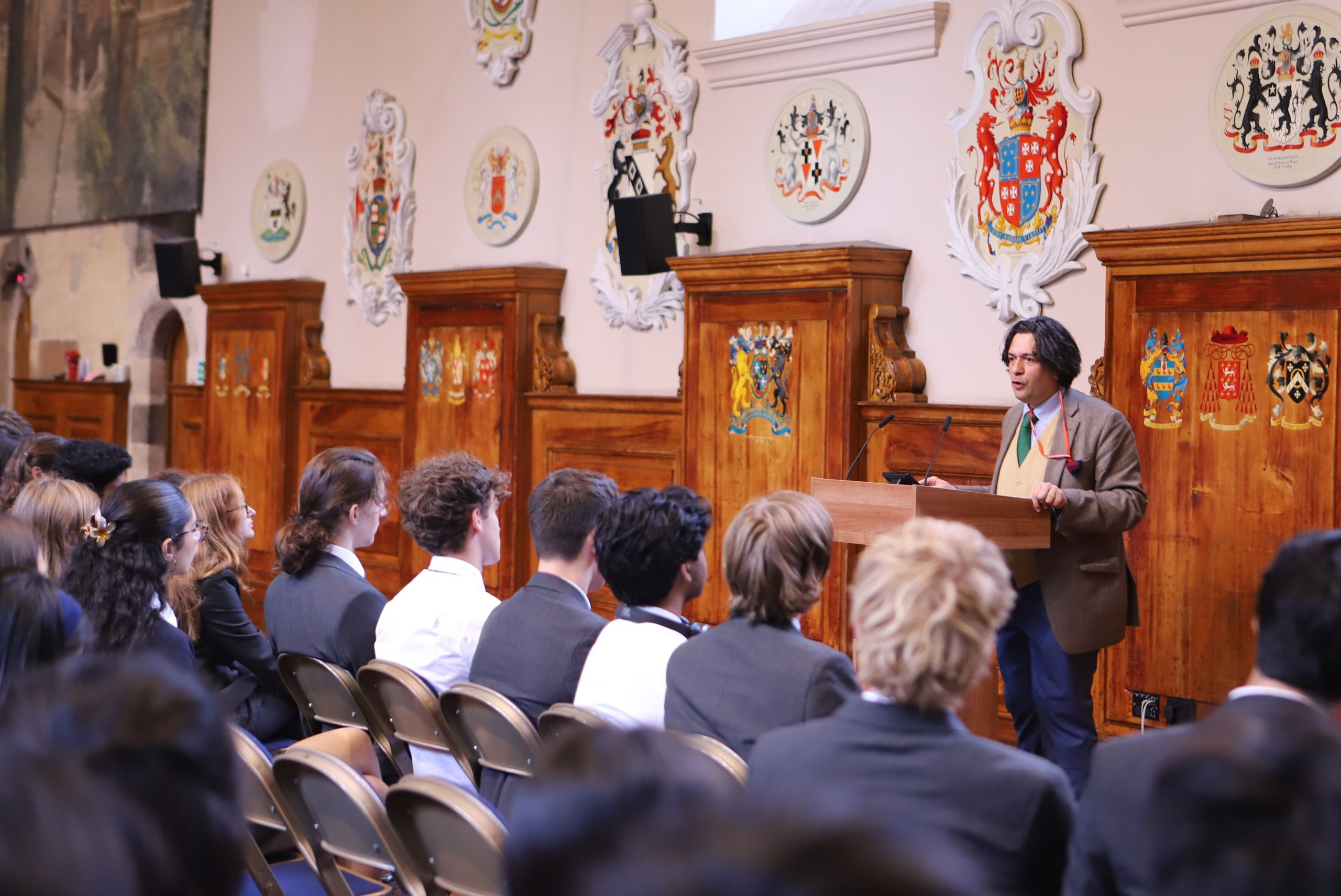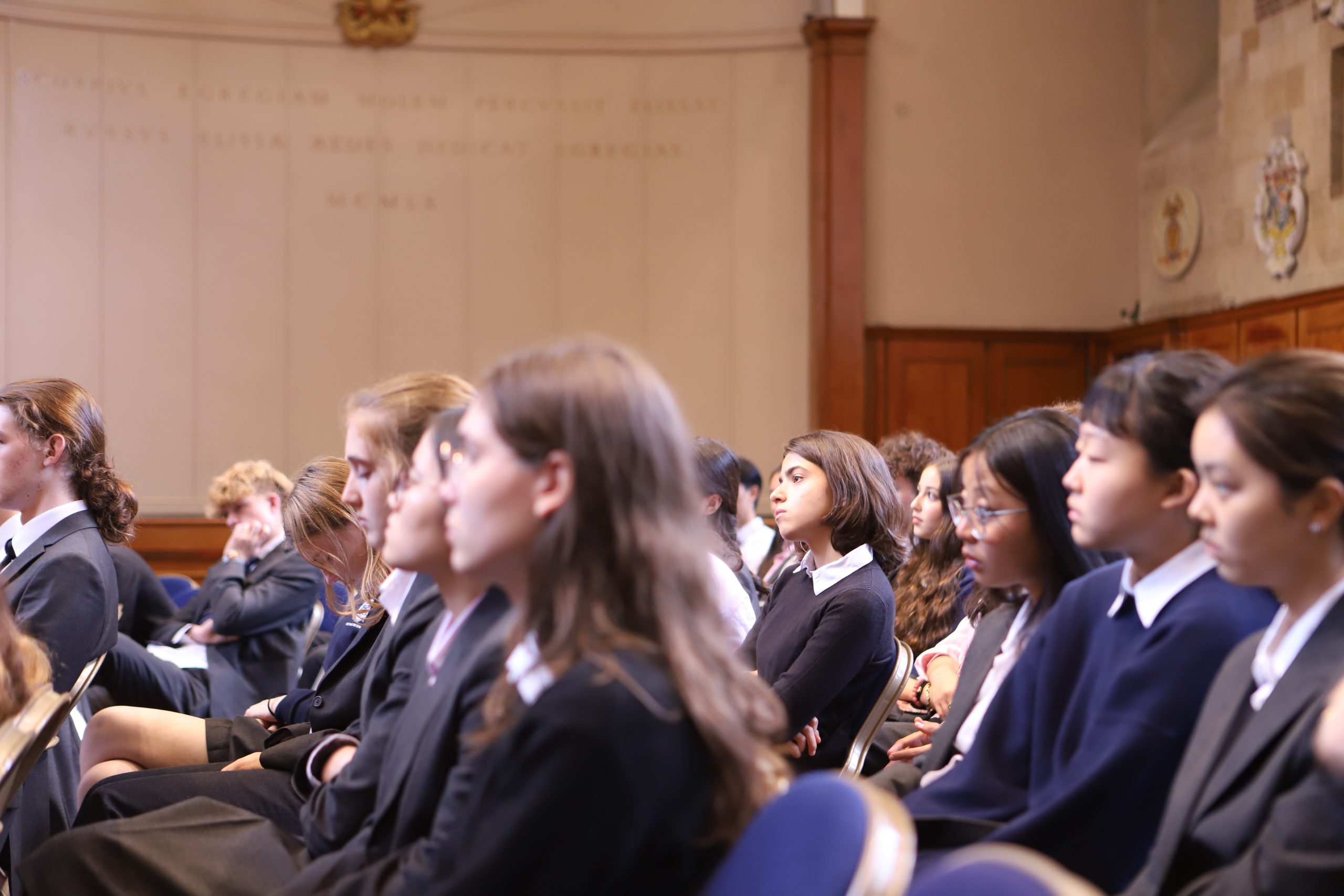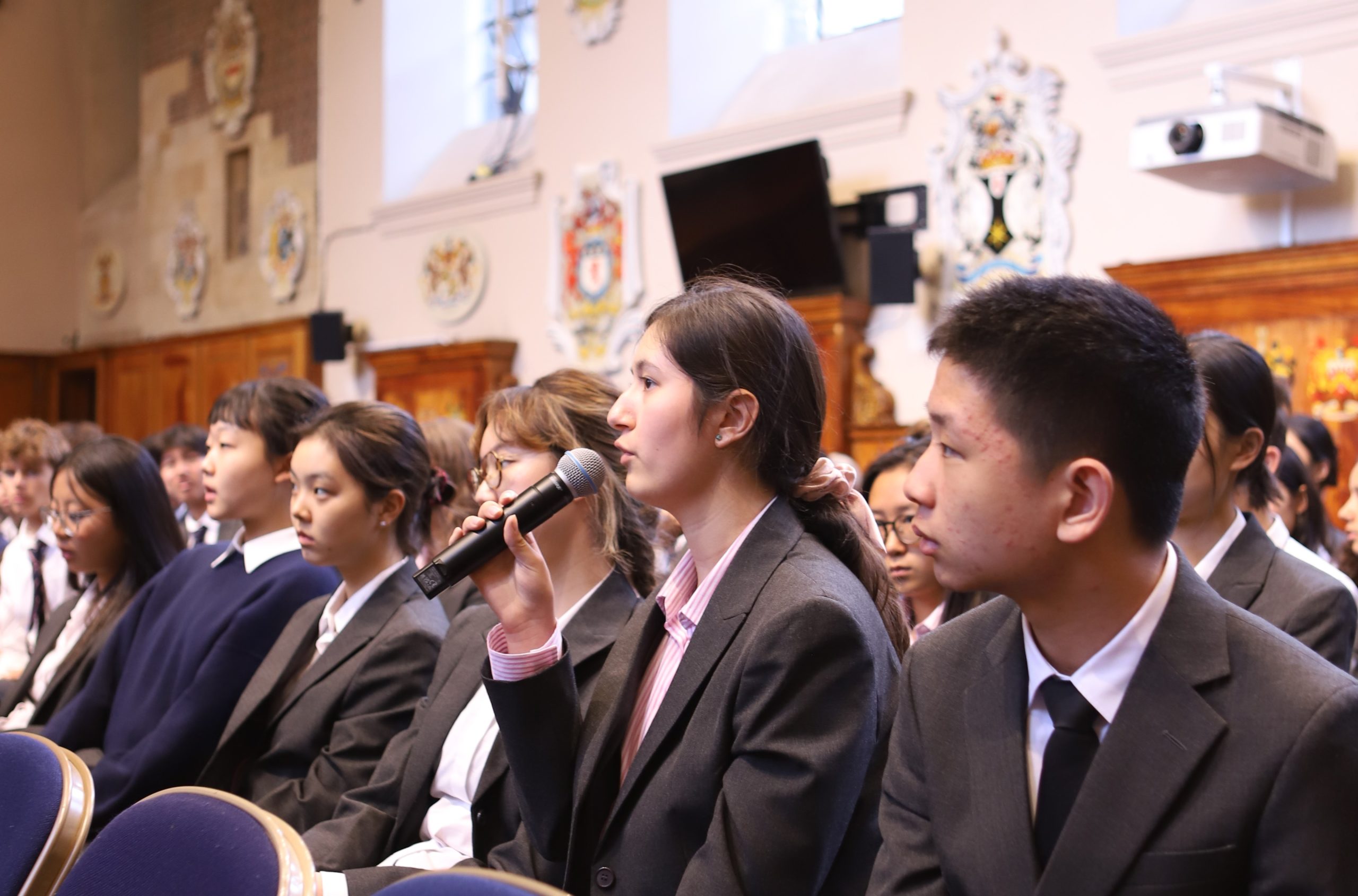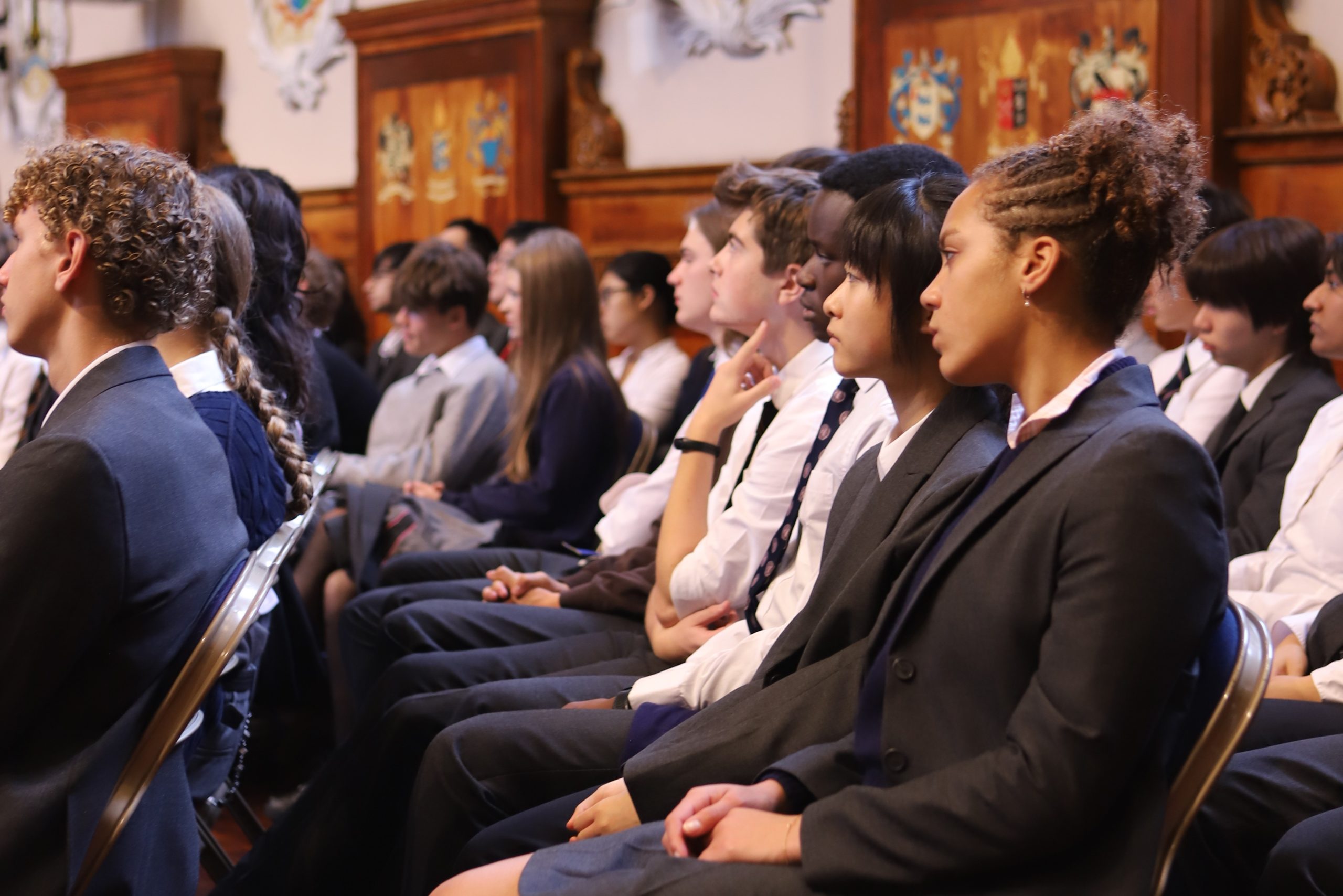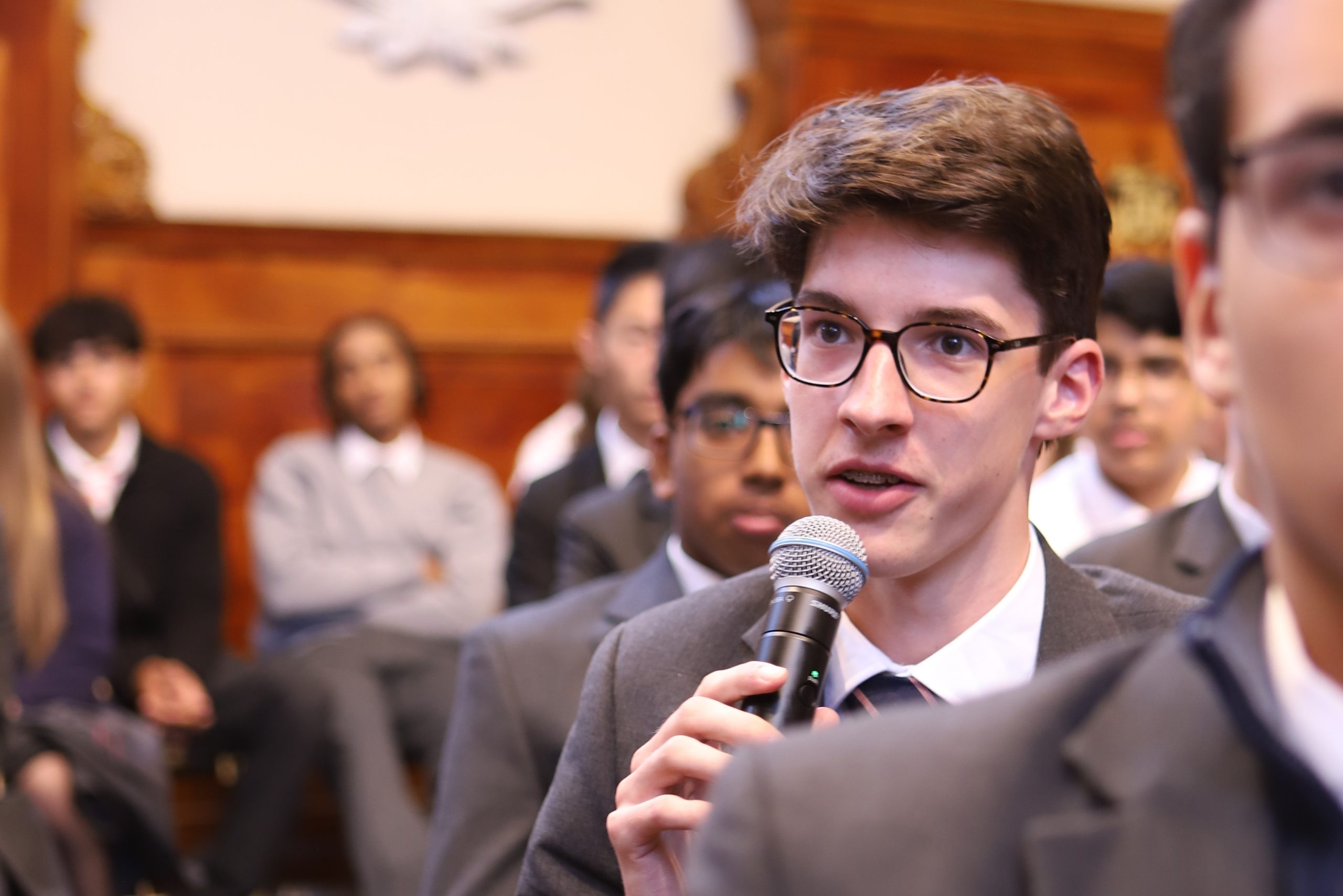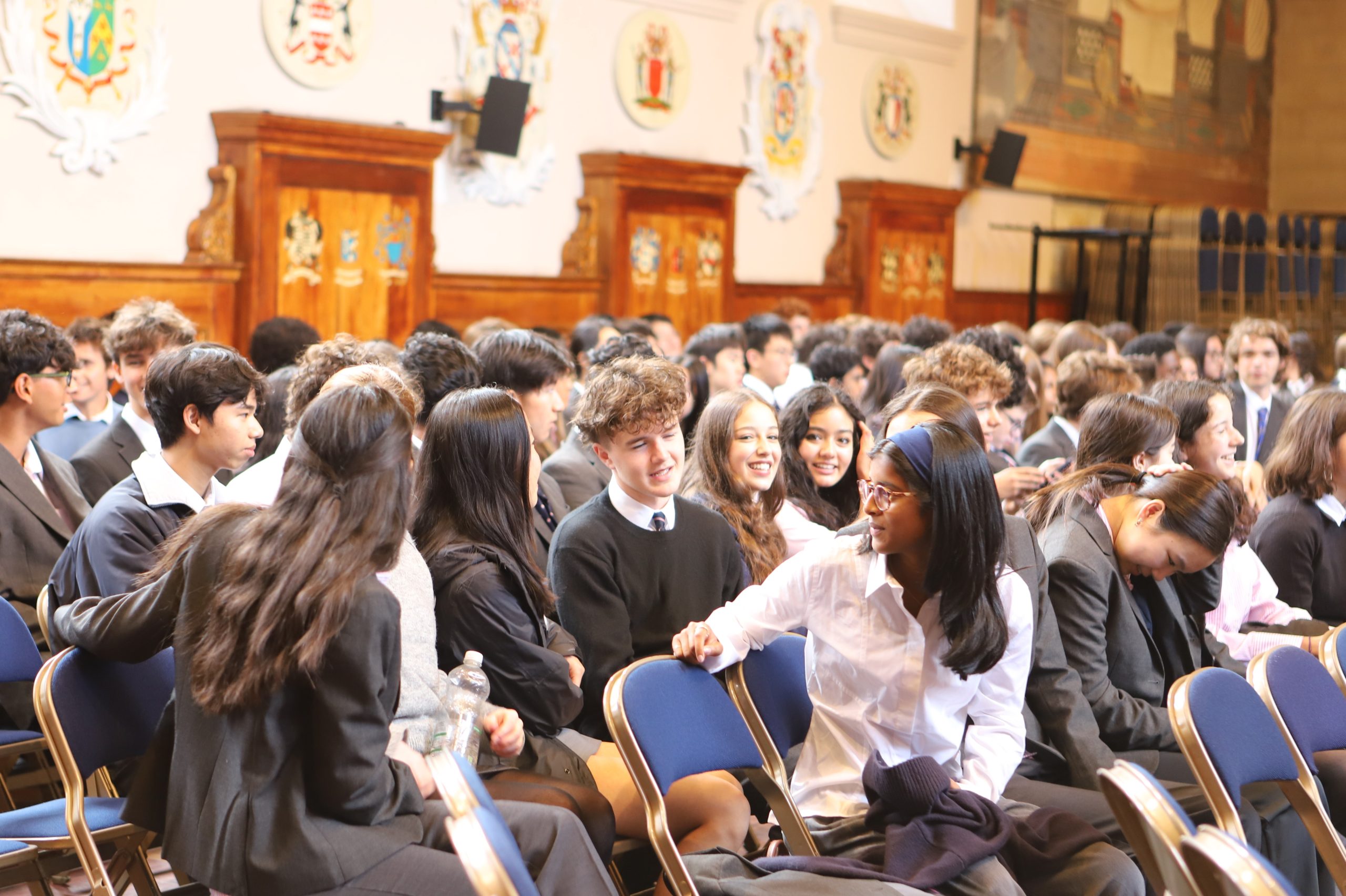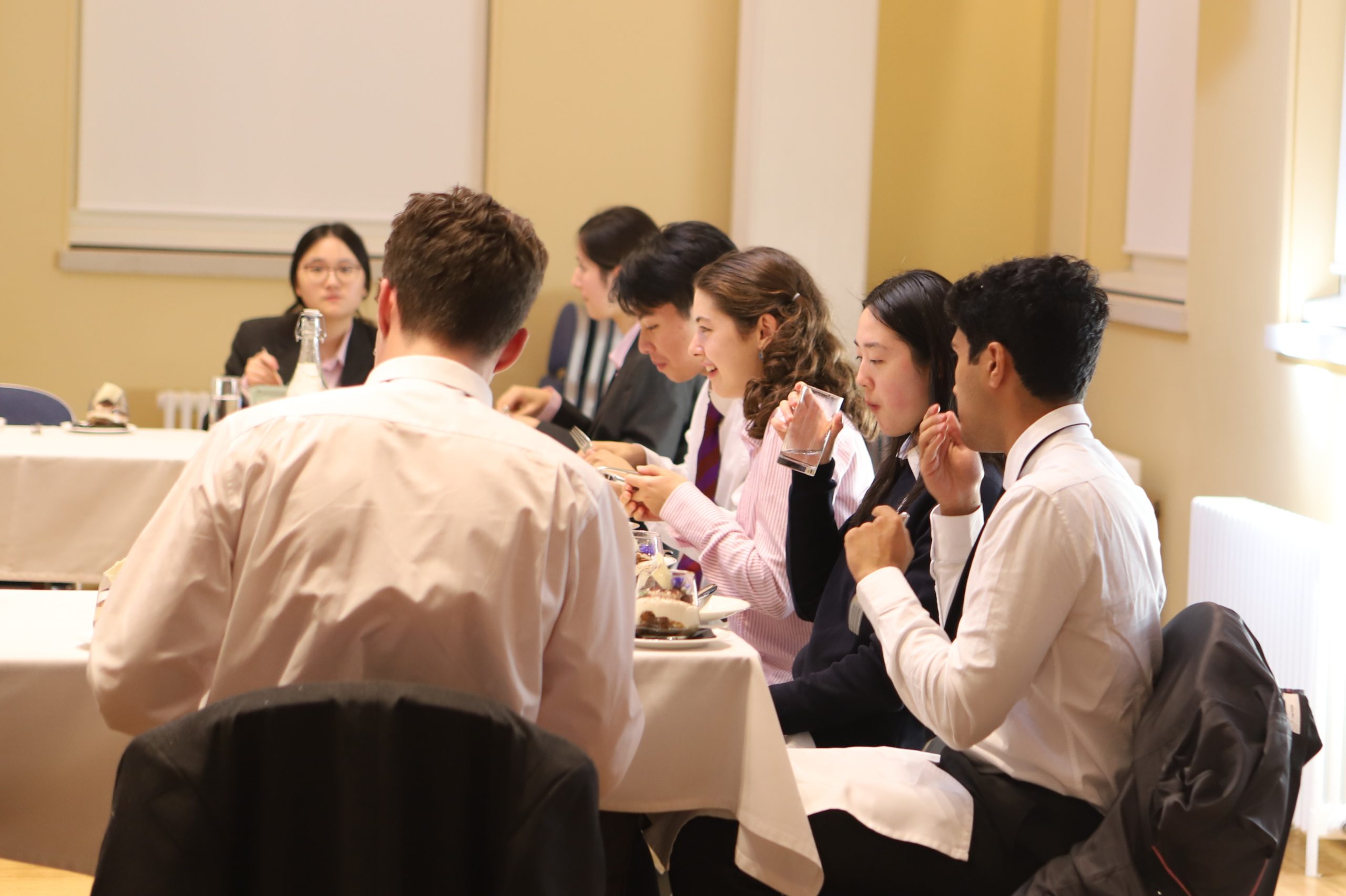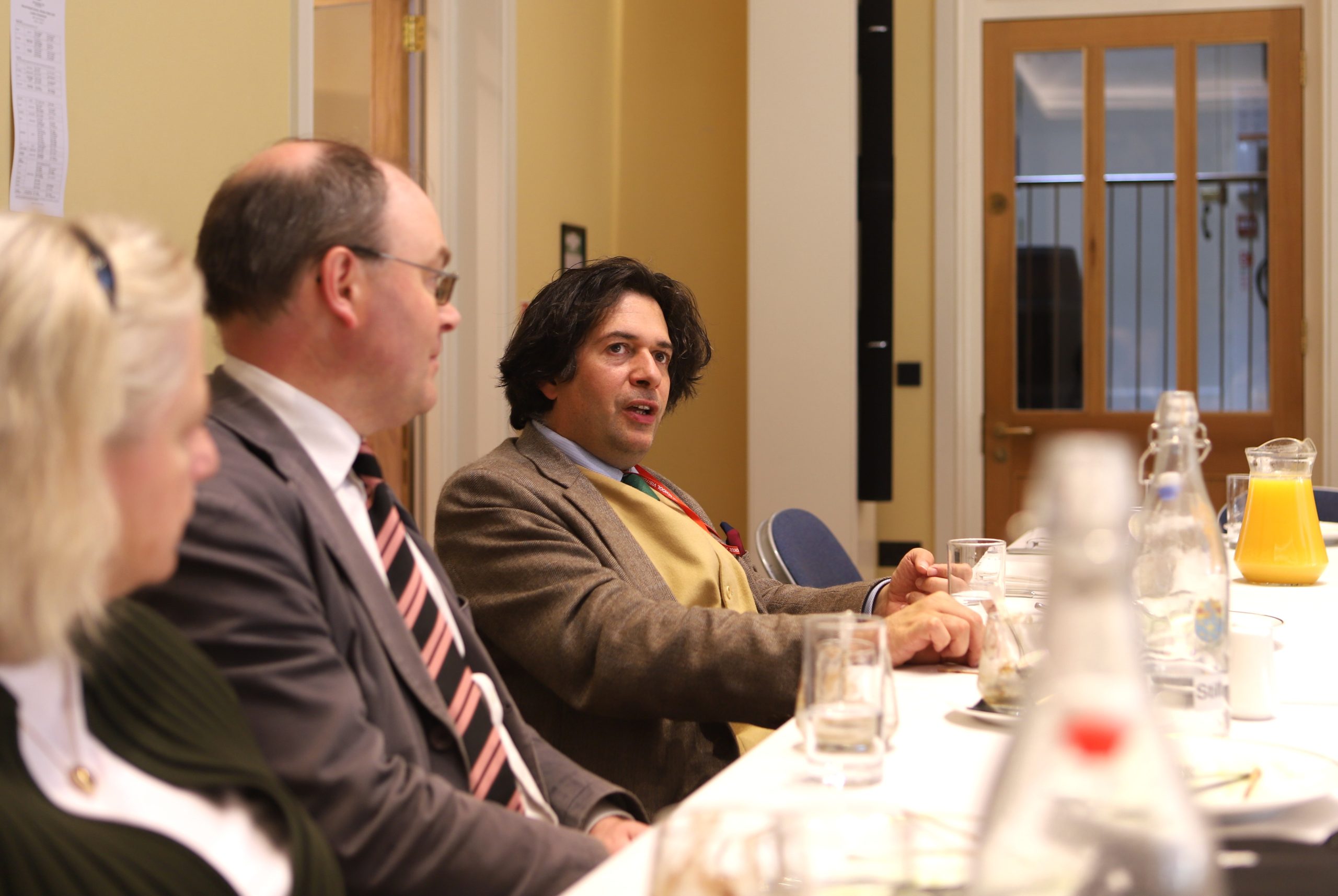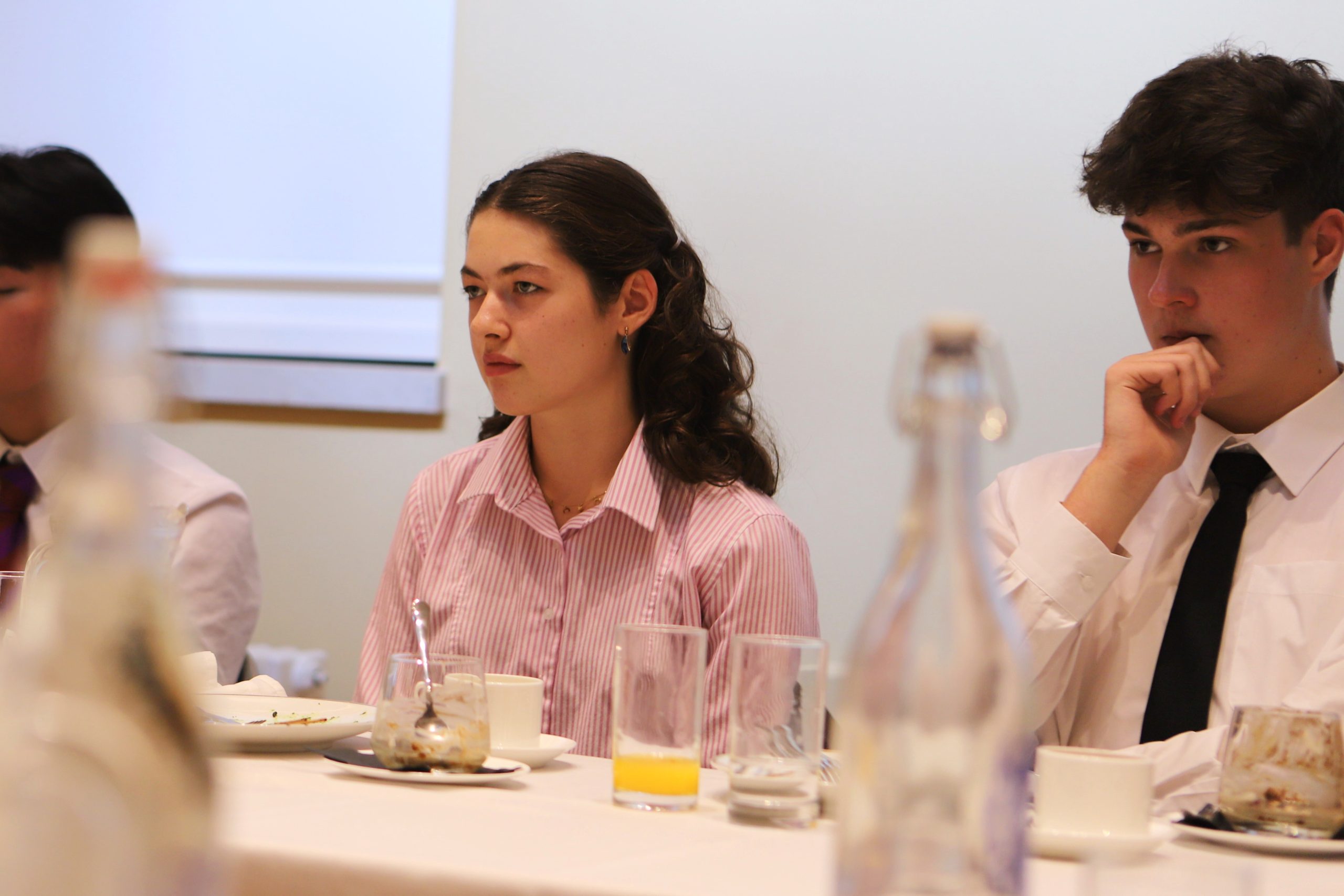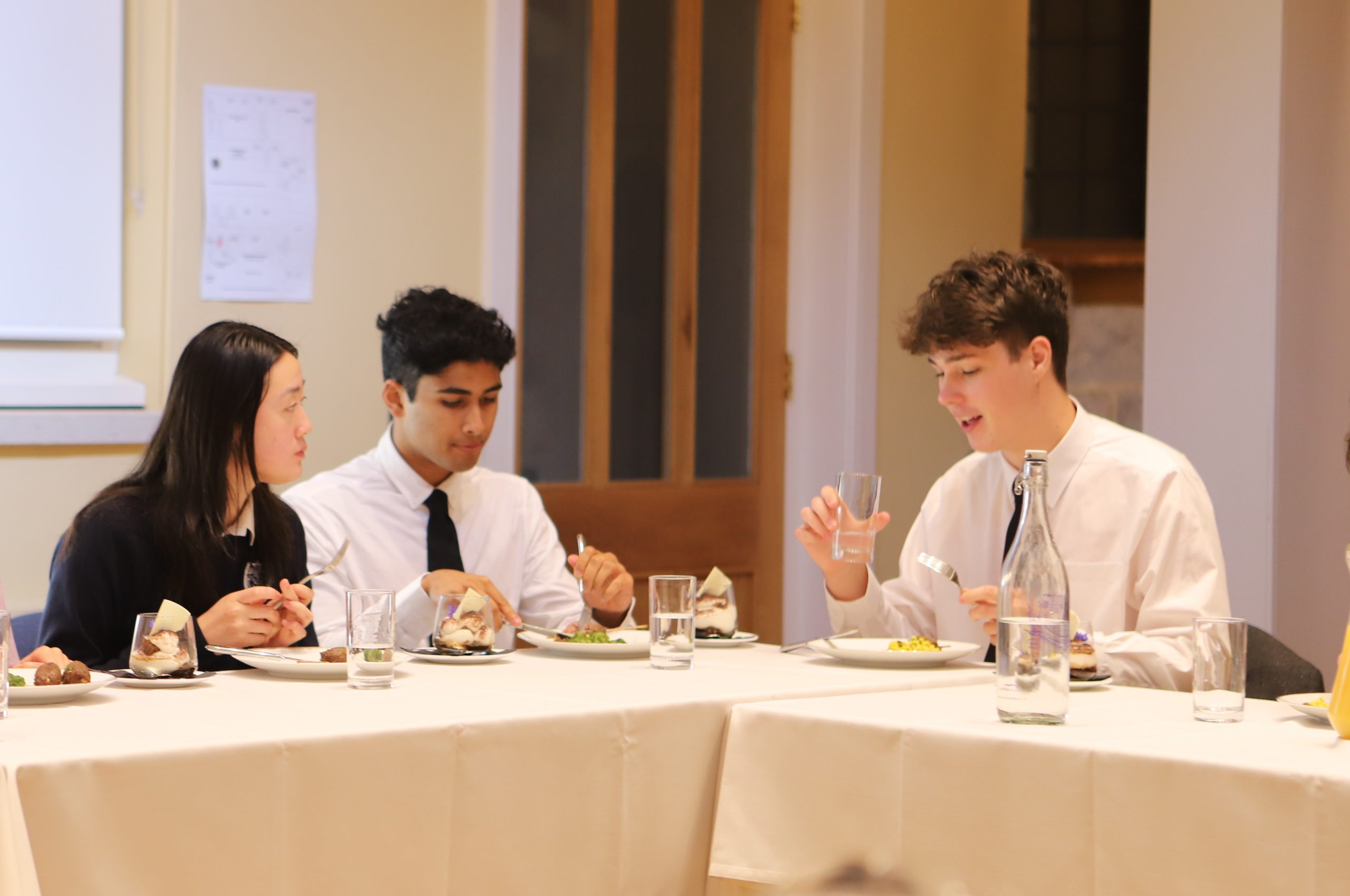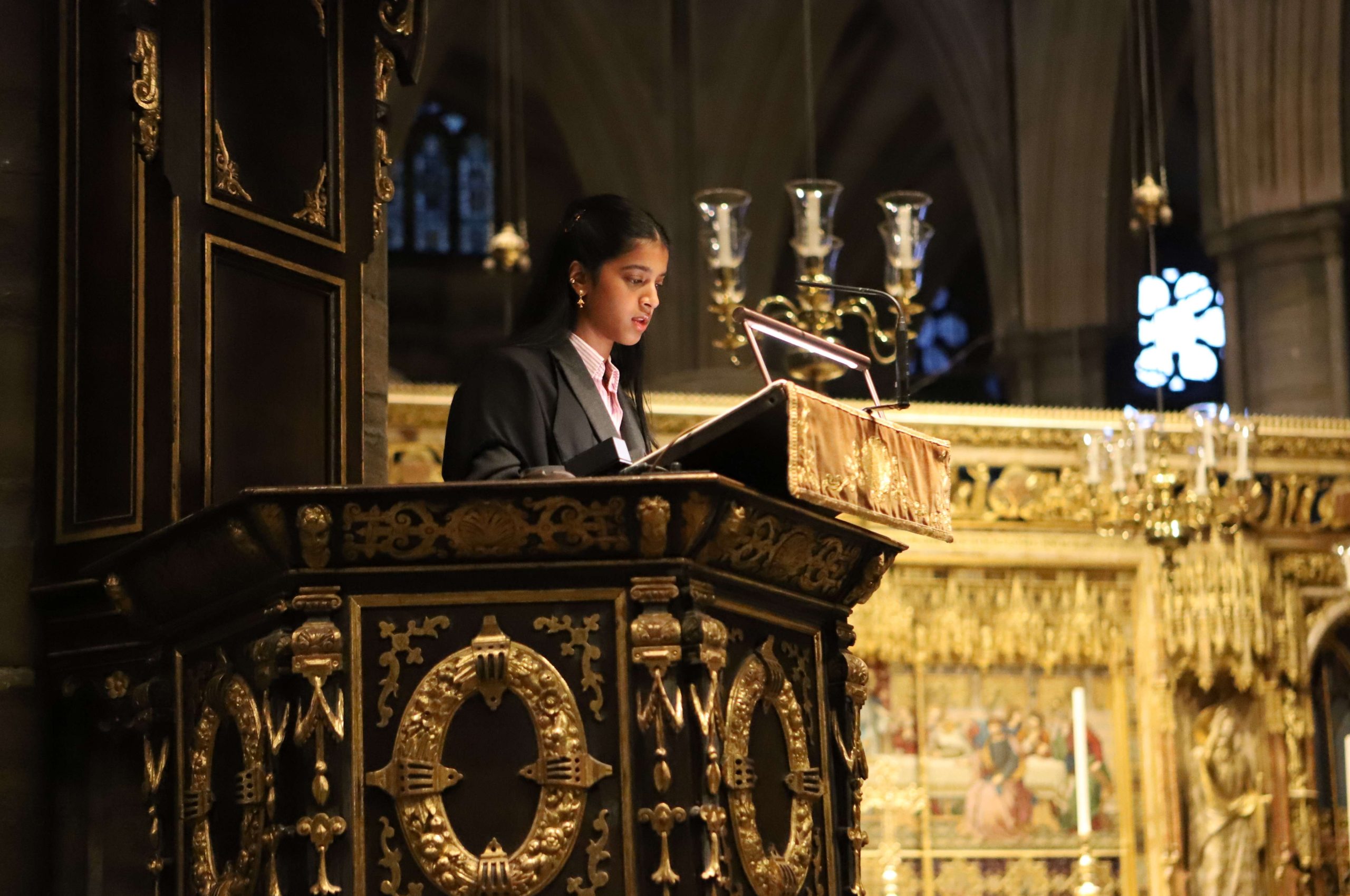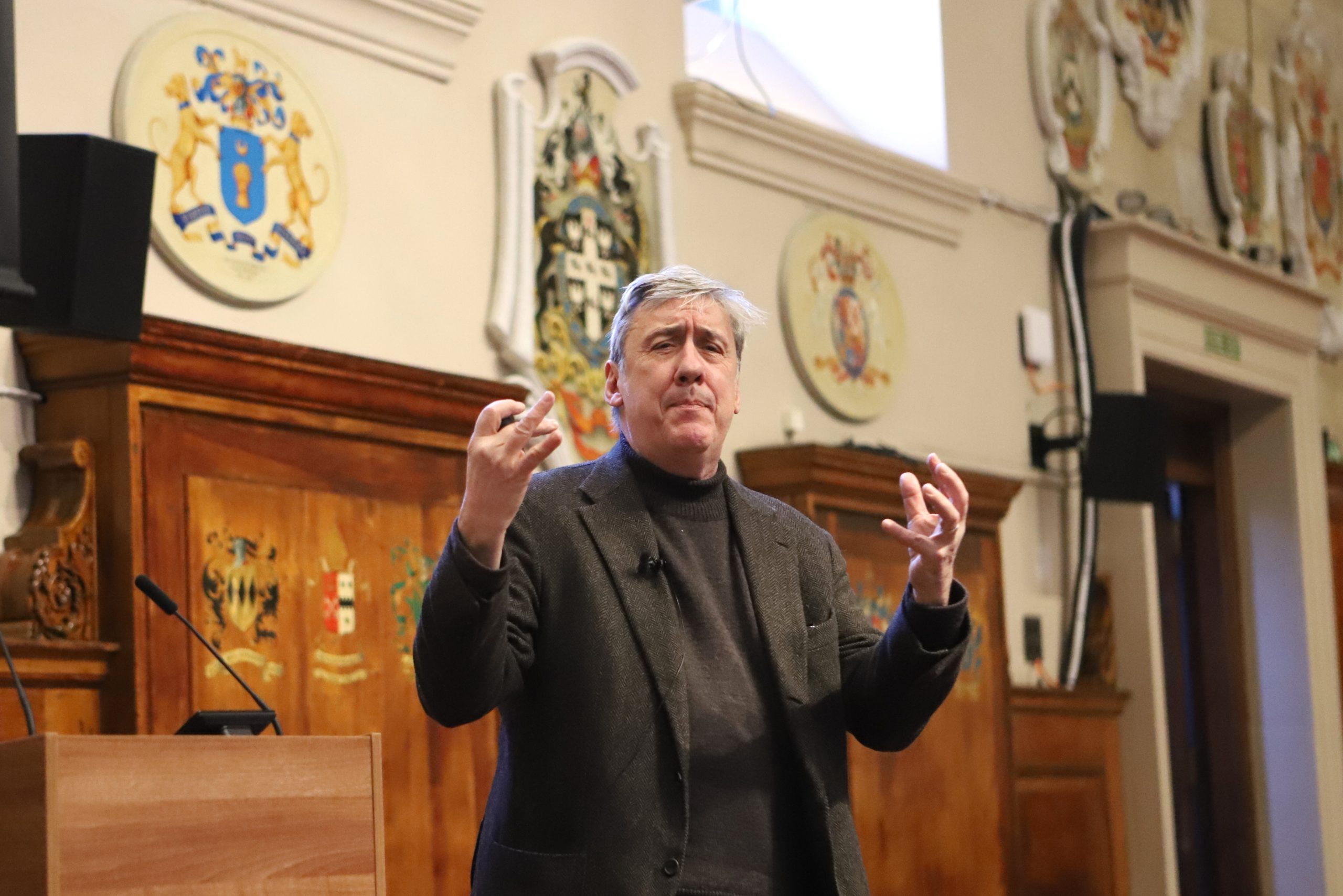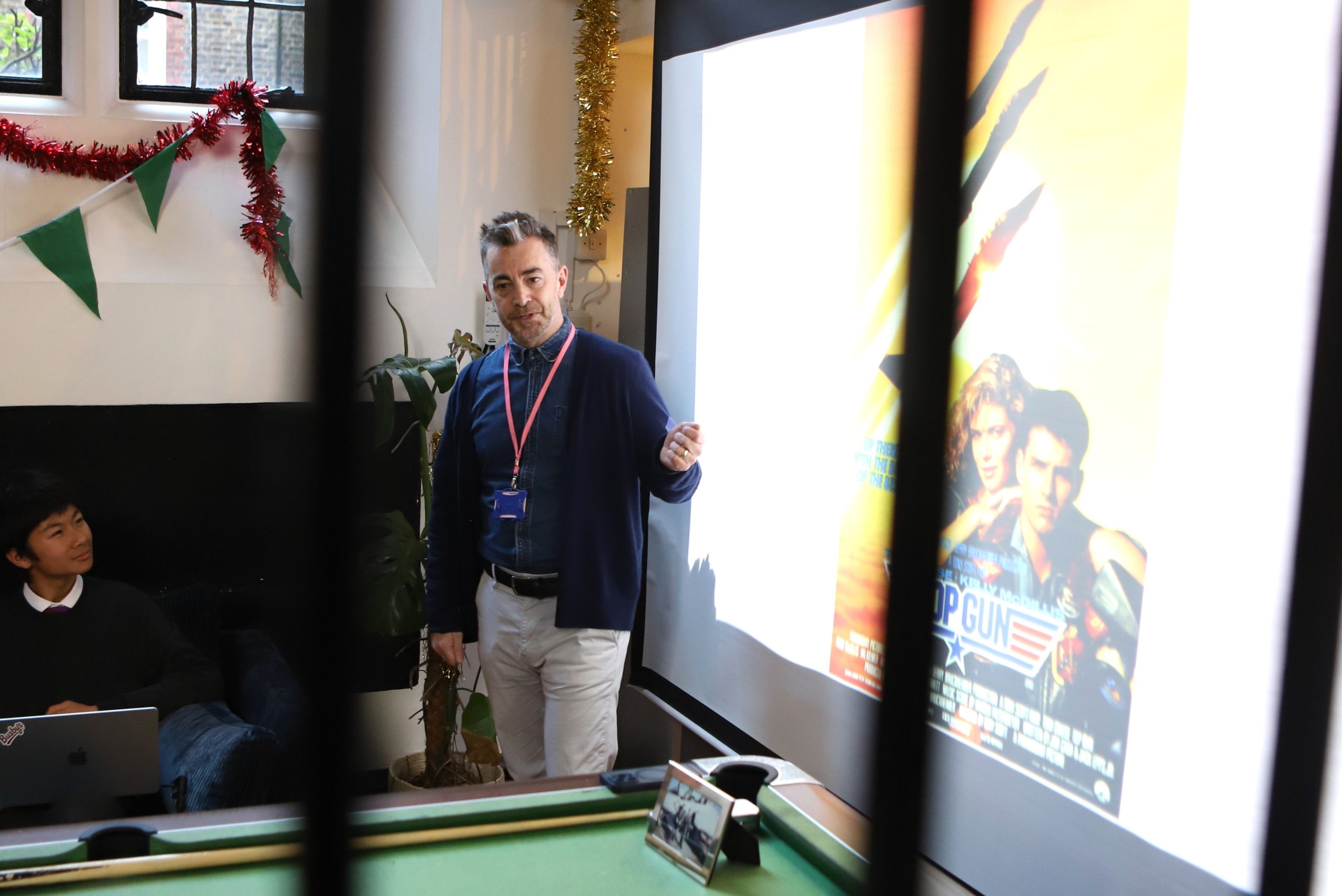Is God an Englishman? Author Bijan Omrani presented the themes of his new book, as Westminster pupils probed the role of religion in today's England
The long and ongoing impact (and decline) of Christianity on the culture of England was the focus of the first John Locke lecture of the school year, as former Westminster School Classics teacher, Bijan Omrani, returned to the heart of London to debate his new book, God is an Englishman.
In his talk to the Sixth Form, a picture of the unifying force of Christianity on a disparate Middle Ages was painted, detailing the conversion of the Angles to Christianity under Pope Gregory in the 590s, and how Bede chronicled the movement of this new religion across the country Ecclesiastical History of the English People in the 700s. Bijan focused on the Christian development of this English nation, looking at codes of law and morality, and structures of government and kingship, that persist to this day.
A major theme in his new book is the idea of a Christianity in decline in England. Jumping forward to the 20th century, Bijan acknowledged the swinging 60s as a mass reaction to having been “locked-in” during the war years, technical advancements and changing fashions, and the era’s profound effect on the breakdown of clubs and gatherings in churches and chapels. This “perfect storm” shifted the general ethos from investing in others to investing in oneself. “In the prevailing world you might feel like you’re nothing more than your qualifications, your beauty, your sporting accolades”, he said. “In Churches, you are cherished equally”. Recognising Christianity’s ability to challenge secularism and an atomised society, with ideas of community and mutual respect, Bijan asked his audience to consider the religion’s value at a time when it is in decline.
Questions from the young audience raised more questions about Christianity in today’s England. On the continued presence of bishops in the House of Lords, Bijan answered: “Bishops are the only people in the Upper House who are not chosen by the government or the Prime Minister. They are the only people with a territorial tie and a sense of representation of their diocese. They have a deep consciousness that they might represent peoples of all faith”. Another question asked if the influence of Christianity on English law might be compared to the influence of religions such as Islam on jurisdictions in Central Asia. He responded that the vastness of Asia and its diversity of religious and spiritual traditions meant the link between religion and law was likely less strong, and historically based more on logic and reasoning than on direct religious doctrine.
After the lecture, at the traditional Locke lunch, ten pupils continued the conversation with Bijan, discussing a new affinity with Christianity amongst Gen Z boys, some personal experiences with religion, and finding academic responses to complex arguments.
Ellie (Sixth Form, MM) said: “It was a thought-provoking conclusion to an exceptional talk. I am incredibly grateful to have experienced this exploration of the jurisdiction within which we live and study, delivered with such passion and clarity by Mr Omrani. What an incredible start to the 2025 John Locke Series!”
Lucas (Sixth Form, BB) said: “Dr Omrani shared an insightful perspective into the impact of Christian thinking on modern society. Over lunch, we discussed the growing prevalence of agnosticism, the contributing factors to the decline of Christianity in the late 20th Century, and the impact Christianity has had on women’s role in society, as well as the impact women have had on Christianity.”
The School’s John Locke Lecture Series reflects Westminster School’s commitment to intellectual curiosity, rigorous debate, and preparing students for leadership in a global society. Designed to foster critical thinking and academic excellence, it takes the place of a lessons in autumn and spring, and both complements and compliments the intellectual weekly life of Year 12 pupils. Its frequency means that pupils are exposed to a wide range of prominent speakers – a bit like having ten speech days in two terms.
Related News Stories
